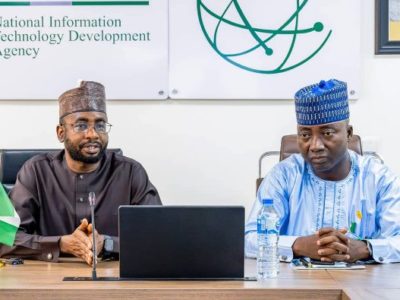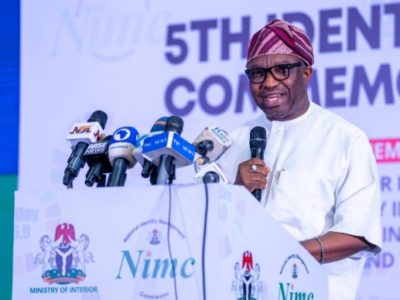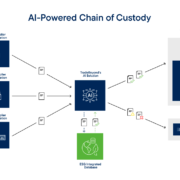“As a community, you are expected to report cases of telecoms infrastructure vandalism to the nearest law enforcement agents such as the Police, Nigeria Security and Civil Defence Corps (NSCDC), and share adequate information received from NCC with your family, friends, neighbours.
RELATED: Quality of service, fair competition, digital economy top NCC’s new Strategic Vision Plan
He was speaking recently at the second edition of the Village Square Dialogue (VSD), one of NCC’s consumer outreach programmes. The dialogue took place in Danbatta Local Government Area, Kano state with a focus on, “Protection of Telecom Infrastructure for Improved Quality of Service: The Role of Residents.”
The telecom regulator noted that vandalism of telecom infrastructure has a negative impact on the community as it reduces coverage area, leading to ‘dead spots’ on the network which result in poor QoS and quality of experience (QoE) by the consumers.
“In addition, destruction of telecom infrastructure discourages investment in network expansion by operators,” he added while addressing telecoms consumers and traditional rulers at the forum,
He said to ensure improved telecom service delivery, a community must protect telecom infrastructure in its vicinity by allowing the installations of equipment and maintenance or repairs on sites by technical staff of service providers.
He enjoined members of respective communities to guard against destruction of telecoms infrastructure, through prompt notification of service providers of any ongoing road construction activities by companies or government agencies to avoid service disruption that may arise from damaged infrastructure.
According to Danbatta, who was represented by NCC’s Director, Technical Standards and Network Integrity, Bako Wakil, protecting telecom infrastructure is very important in any community, as the ability to connect and communicate is fundamental to human existence considering its centrality in improving businesses, government services, education, communities and families to share information through seamless connections.
He said technological advances have assisted people to gain access to learning opportunities outside traditional schooling.
His words: “Today, you simply need a computer, smartphone, and the Internet connection to do so many things and telecom infrastructure in your communities provide the critical facilities that support Internet access to these devices and therefore, you are expected to protect the infrastructure.”
Besides satisfaction of basic needs, and improvement in education, Danbatta told the participants that by protecting telecom infrastructure, they are helping to create jobs, promote e-commerce, assist farmers in the villages to connect with potential buyers in the cities, as well as enhancing connectivity through which citizens in both rural and urban areas are able to harvest their potentials, access information, and engage in social interactions among others.
While reiterating NCC’s commitment to ensuring that the telecoms consumer is protected, well informed, empowered and educated on telecoms-related issues, Danbatta reminded the participants of the availability of NCC-instituted toll-free number 622 for resolving telecom service-related complaints; the Emergency Number 112 to get succour during emergencies; the 2442 Do -Not-Disturb Short Code for managing cases of unsolicited text messages, among others.
He also encouraged participants to leverage the various social media and web portals of the Commission to lodge complaints for effective and satisfactory resolutions.
“One of the NCC’s core mandates is to ensure that the consumer is the main focus of the Commission’s regulatory activities. This is why Section 104 of the Nigerian Communications Act (NCA) 2003 mandates the NCC to ensure that service providers meet such minimum standards of QoS as the Commission may, from time to time, specify and publish; deal reasonably with consumers; and adequately address consumer complaints”, Danbatta said.
The maiden edition of the VSD took place in Ogun State in April, 2022.































